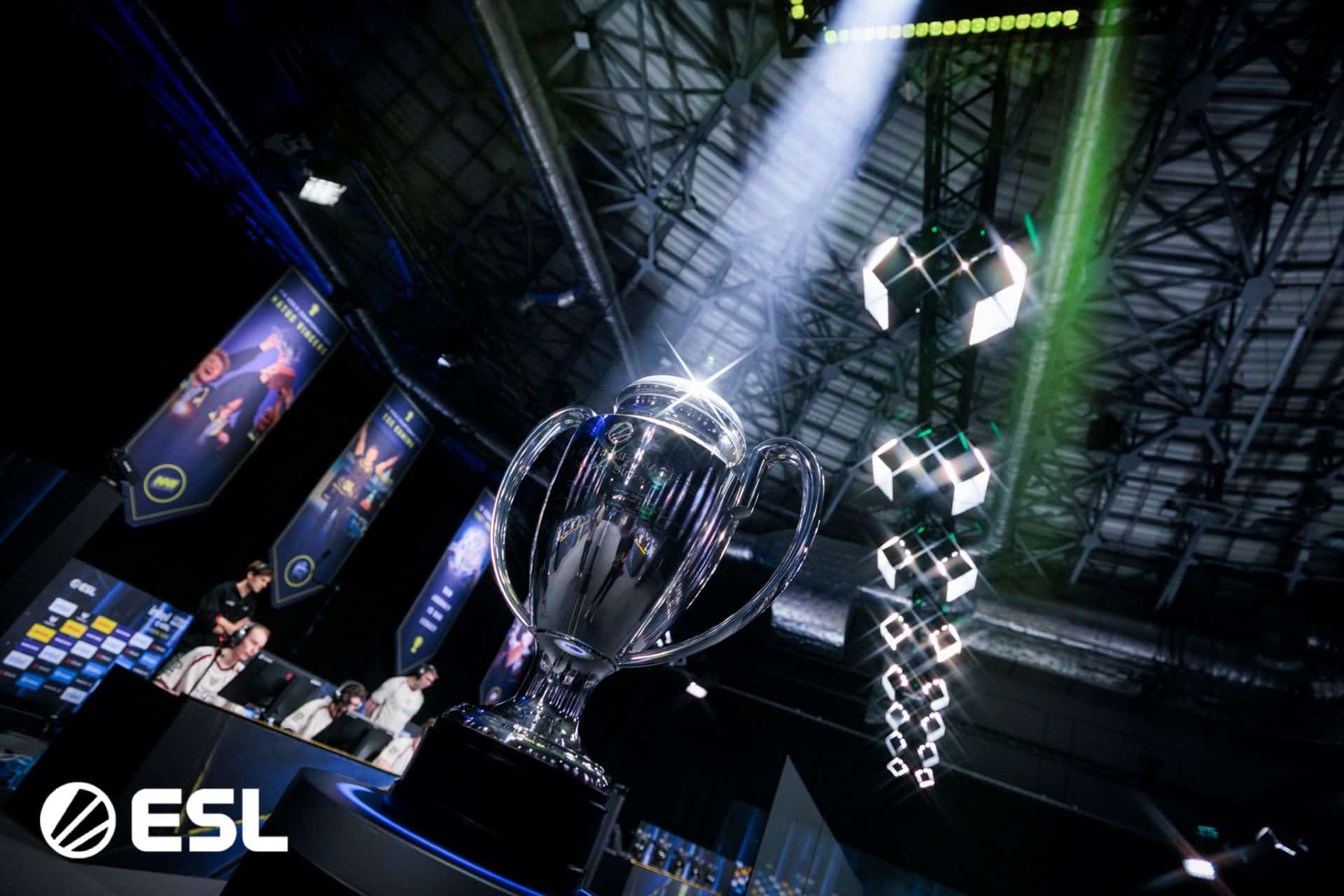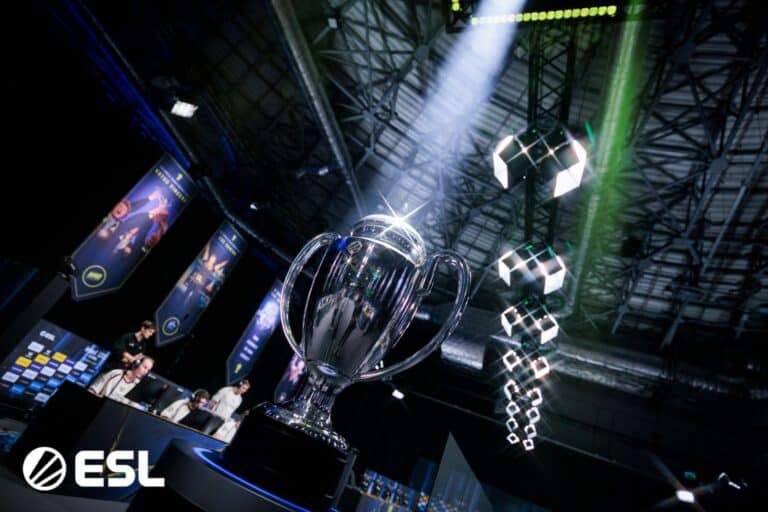Over 400 esports players report symptoms of depression, new study finds
Cecilia Ciocchetti, Senior Editor
Last Updated: 20/05/2025
New research from The GG Project has explored the current state of mental health in esports and highlighted the psychological strain esports players sustain.
The GG Project—The Good Game: Promoting Mental Health in Esports—is an initiative led by Vrije Universiteit Brussel—the Free University of Brussels—and supported by seven partners, including the Belgian Esports Federation and G2 Esports.
Funded by the EU’s Erasmus Sport programme, the project set out to understand and improve mental health across all levels of esports.
Between October 2024 and February 2025—in a one-time international survey—the GG Project research collected data from more than 1,000 players, exploring issues like depression, anxiety, and sleep disturbance.
“We wanted to make sense of what is the current state of mental health in esports,” said contributor Matthew Watson.
Watson, who is both an experienced performance coach in the esports sector, a PhD candidate focusing on coaching dynamics, and Vice Chair of Health & Wellbeing at the Belgian Esports Federation, spoke with Esports News UK to unpack the results of the project.
The survey collected more than 1,000 complete responses from players across 64 countries, the majority of whom were based in Europe. These respondents varied from casual players to elite professionals, providing a wide range of experiences and mental health challenges, revealing what Watson described as a “pretty rough reading”.
G2 performance coach Ismael Pedraza-Ramirez and director of esports Julius Ylänne also contributed to the report.
A third of esports players report poor mental well-being in study
Players were asked directly about key indicators of psychological distress, such as persistent negative thoughts, and about one-third of all participants had results suggesting poor mental well-being. Roughly 25% reported symptoms consistent with moderate-to-severe depression—10% of which warranting potential intervention.
Perhaps most concerning, however, was the figure of 70% of players who displayed signs of sleep disturbance, which is a known contributor to declining mental health.
The report also found:
- 36.4% of esports players experienced poor mental well-being, whereas 63.6% reported good mental well-being.
- 45.3% of players reported moderate-to-severe symptoms of depression.
- 33.6% of respondents reported moderate-to-severe symptoms of anxiety
- 70.7% of the total sample reported indicators of sleep disturbance
One of the more surprising findings, though, was discovering the amount of time spent playing wasn’t associated with declining mental health.
“All the reported issues weren’t related to the amount people were playing,” Watson explained, noting how this finding contradicts the commonly held belief that extended gaming leads to emotional burnout or psychological decline. “Yes, there is literature about grind culture,” he added, “but we didn’t see that reflected [in the research].”
Players at the highest levels of competitive success reported both higher well-being and higher rates of depression, anxiety and sleep issues. Although this may appear contradictory, Watson suggests that players may feel a sense of satisfaction in reaching the top, but they also face constant performance pressure, daily scrutiny and internal stress about keeping up or losing their job. It’s a balance that, while rewarding, can be psychologically taxing.
The GG Project also highlighted a particularly vulnerable group of esports players, those just below the professional tier, often considered ‘elite’ but not quite established as top-tier pros. This group—caught in a liminal space between reaching their dream but not being there quite yet—reported some of the worst mental health scores in the entire sample.
🔗 Link to report:https://t.co/uciZLjXD4C
— The Good Game Project (@GGcoop) March 18, 2025
Thanks to @VUBrussel @Esports_Belgium @G2esports @esport_united @EsportsIceland @UABBarcelona @umeauniversity and @EU_Commission
“It might be that in that group you see people sense that it’s like, well, I’m very good, I need to get to the next level… and I’m really experiencing the pressure,” Watson said. These are individuals who have often sacrificed years of education, social development, or traditional employment to chase an uncertain future—and without the financial stability or recognition of a contract with a major organisation, the weight of that uncertainty can be especially difficult to carry.
Despite the high levels of distress, just under half of the surveyed players reported that they were currently receiving or had previously received professional help for mental health issues.
According to Watson, this shows a mixed picture of, on one hand, an encouraging display of many players open to seeking help, and, on the other, a large portion of unsupported players experiencing mental health issues.
“If we can provide more support to help with depressive symptoms whilst addressing things like anxiety or improving sleep quality and quantity, those seem to be quite low-hanging fruit to improve things,” he noted.
The study was cross-sectional, meaning it looked at things at one specific point in time, instead of tracking people over a longer period like a longitudinal study would. So while it gives us a useful look at current mental health trends in esports, it can’t really pinpoint what’s causing certain symptoms or how those symptoms might change over time.
You can read the full GG Project European report on the mental health outcomes in esports players here
GG Project and future studies on mental health in esports
Watson believes that future studies—ideally involving long-term data collection and in-depth interviews—are necessary to identify root causes and the progression of mental health issues within the scene.
Still, there are signs of progress. The high response rate to the survey indicates that players were not only willing but in many cases eager to share their experiences, which points to a growing openness around mental health within the community.
“We can at least be happy that so many felt comfortable taking part and seemed to be open to seeking help,” Watson said.
In fact, nearly half of respondents—just under 50%—reported having worked with professional mental health services at some point.
“That is, for a young field like esports, probably a good thing,” Watson said, pointing at a contrast to some traditional sports environments where the stigma of seeking help for mental health issues remains. “What’s interesting,” he continued, “is that it seems like quite a lot of players had experience working with support in some capacity. So it feels like a group that is maybe more open to seeking support.”
That shift in culture—one that encourages openness rather than silence—could serve as a key strength in esports’ ongoing development.
Watson said:
“Maybe in esports there is help out there and people are okay to go and find it. We just need to signpost it a bit [better].”
Matthew Watson
In his view, giving players the vocabulary to name their struggles and the tools to access resources is essential to fostering a healthier, more sustainable environment.
Especially in today’s hyper-connected world, where “everyone’s just a DM away,” as Watson said, that kind of education could prove transformative. Although esports is still developing its infrastructure and cultural norms, its relative youth may offer a unique chance to prioritise mental well-being from the ground up. Watson believes that this new generation of competitors may already be redefining what support looks like—not as a weakness, but as a strength.
For now, the GG Project’s research shows that behind the screen, amid the spectacle and the banter, lies a community in need of guidance and sustained care.
Related articles:
- CS players ‘unable to cope effectively with the negative influence of stress’ finds study
- Esports boosts cognition more than sports, finds video game cognition study, but regular exercise is key to strong mental health
- Esports students launch Pokemon club to boost mental health at university
Cecilia Ciocchetti, Senior Editor
Hi, I'm Cecilia! A freelance writer mainly focusing on League of Legends and its esports scenes. Find me at events interviewing anyone who has a story to tell, from players to the talented people working behind the scenes. Do you also have a story to share? Reach out to me via Twitter.
Stay Updated with the Latest News
Get the most important stories delivered straight to your Google News feed — timely and reliable





From breaking news and in-depth match analysis to exclusive interviews and behind-the-scenes content, we bring you the stories that shape the esports scene.
Monthly Visitors
User Satisfaction
Years experience
Latest News











